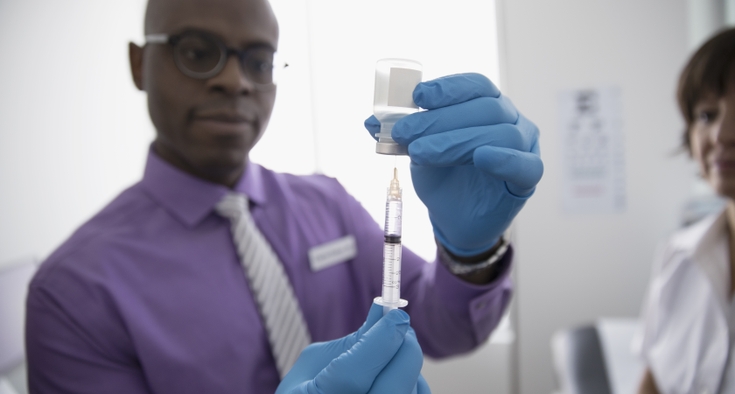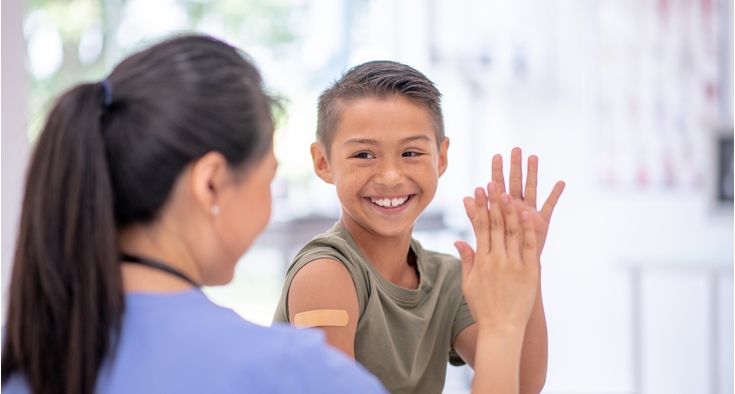More than 1,000 cases of measles have been reported in the U.S. in 2025 and North Carolina logged its first case on June 24.
The worsening outbreak brings to the forefront the importance of the MMR (measles, mumps, rubella) vaccine, which was added to the U.S. recommended childhood vaccine schedule in 1971 and is 97% effective at preventing measles. The MMR was updated in 1989 to become a two-dose childhood vaccine, with the first dose given around 1 year of age and the second given around 4 years.
Dr. David Priest, Novant Health’s chief safety and quality officer, points out that measles is one of the most contagious infectious diseases. Measles has a basic reproduction rate of 12-18, meaning that each infected person could sicken 12-18 other susceptible individuals.
But the good news is that the MMR vaccine is safe and very effective - for most people, it offers lifelong protection. So how do you know if you need a booster shot? It depends on your age and your vaccination history.

“We recommend reviewing your immunization history and talking to your doctor about whether you need additional vaccination,” Priest said.
Priest provided guidelines for adults who may need an MMR vaccination booster.
You may need a measles booster if:
You were born between 1958 and 1989 and you:
- Have never been vaccinated with an MMR vaccine
- Received the MMR vaccine in the 1960s, which was the previous version of the vaccine
- Received a single MMR vaccine without the second dose
- Are at high risk of exposure through travel, especially to outbreak areas
- Are a healthcare worker and may be exposed through work
- Are considering pregnancy and your vaccination status is unknown
What causes a measles outbreak?
The current measles outbreak in the U.S. can be linked to an increase in the unvaccinated population in the U.S. Ninety-five percent of current measles cases have occurred in unvaccinated individuals.

There has been a fear of vaccines causing autism, connected to misinformation from the 1980s where a doctor in England said there was a supposed link.
“It’s been completely disproven,” said Dr. Jennifer Crutchfield Squires, a pediatrician at Novant Health Elizabeth Pediatrics. “The link between autism and vaccination is based on false science and that doctor’s study has been proven wrong by multiple other studies."
While vaccine hesitancy and refusal receive a lot of media buzz, data shows that the overwhelming majority of Americans supports vaccines. Nearly nine out of 10 Americans say the benefits of childhood vaccines, including the MMR, outweigh the risks.
The MMR vaccine may cause mild side effects following injection, like a sore arm or fever. There have never been any deaths linked with the vaccine. It has been exhaustively studied and proven safe. The risk of complications due to measles is much greater than the risk of side effects from the MMR vaccine. Measles can lead to severe issues including pneumonia, encephalitis and brain damage. These complications can occur in anyone, including healthy children and adults.
Measles can also be deadly. In 2023, an estimated 107,500 people globally died from measles, most of whom were unvaccinated or under-vaccinated children under age 5. Measles vaccination has averted an estimated 57 million deaths globally since the year 2000.








